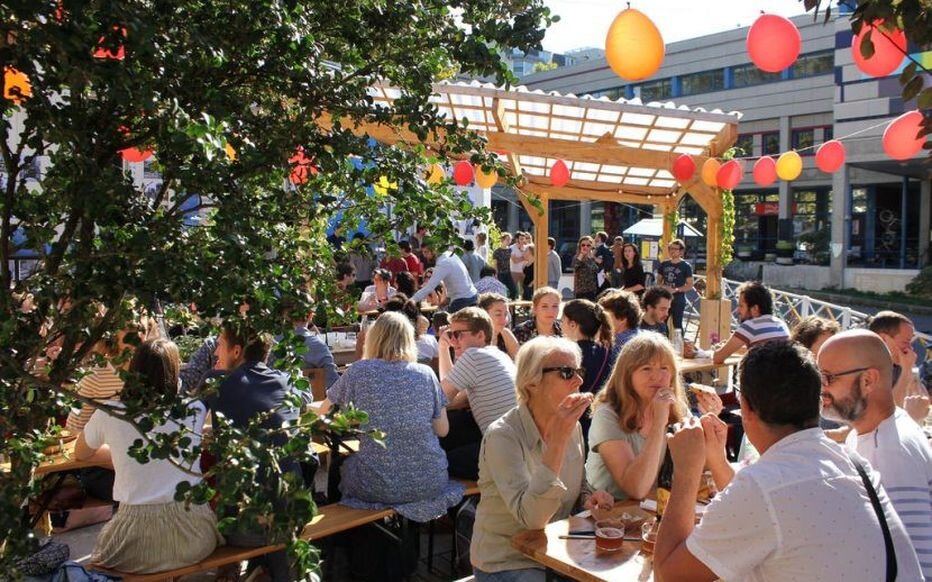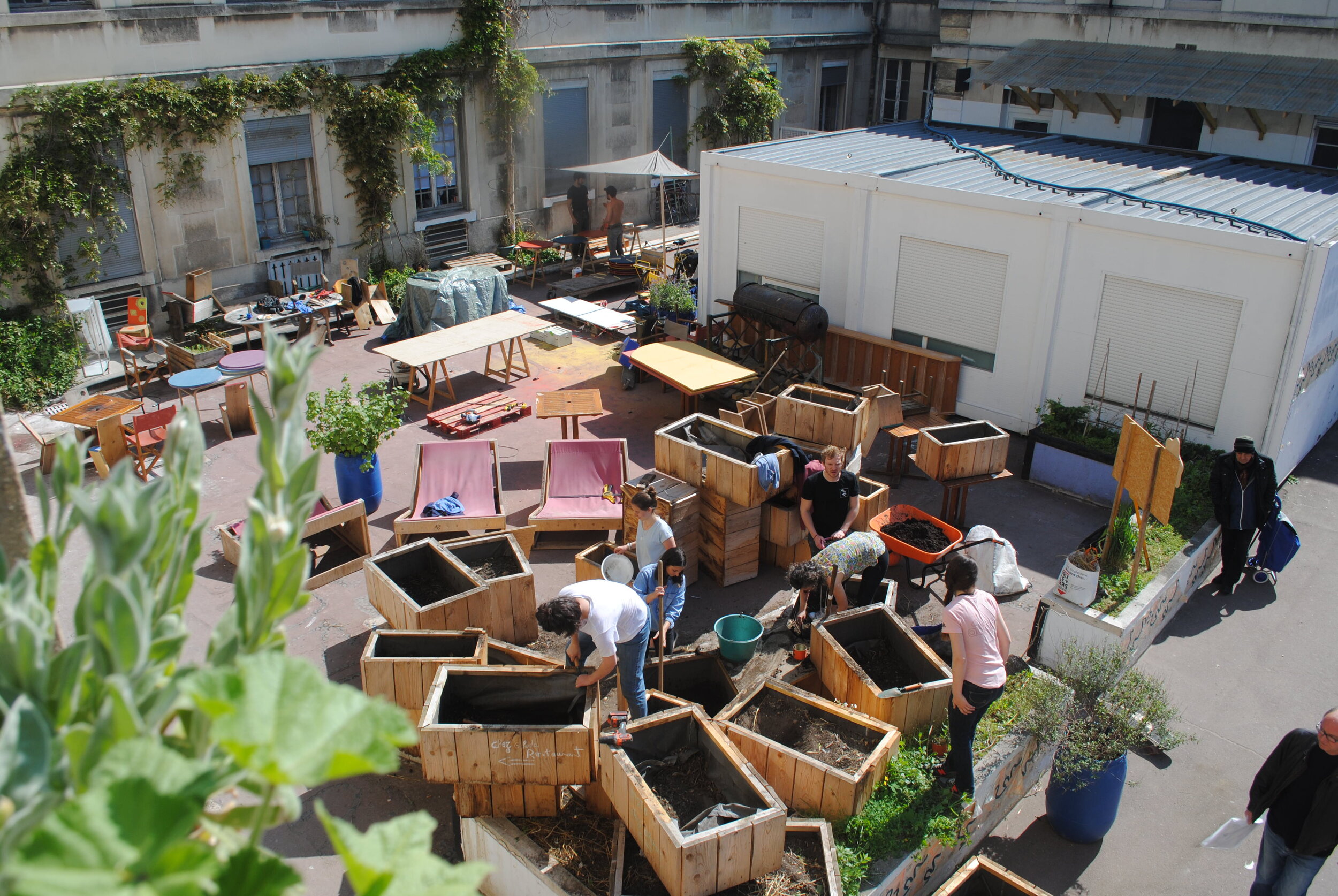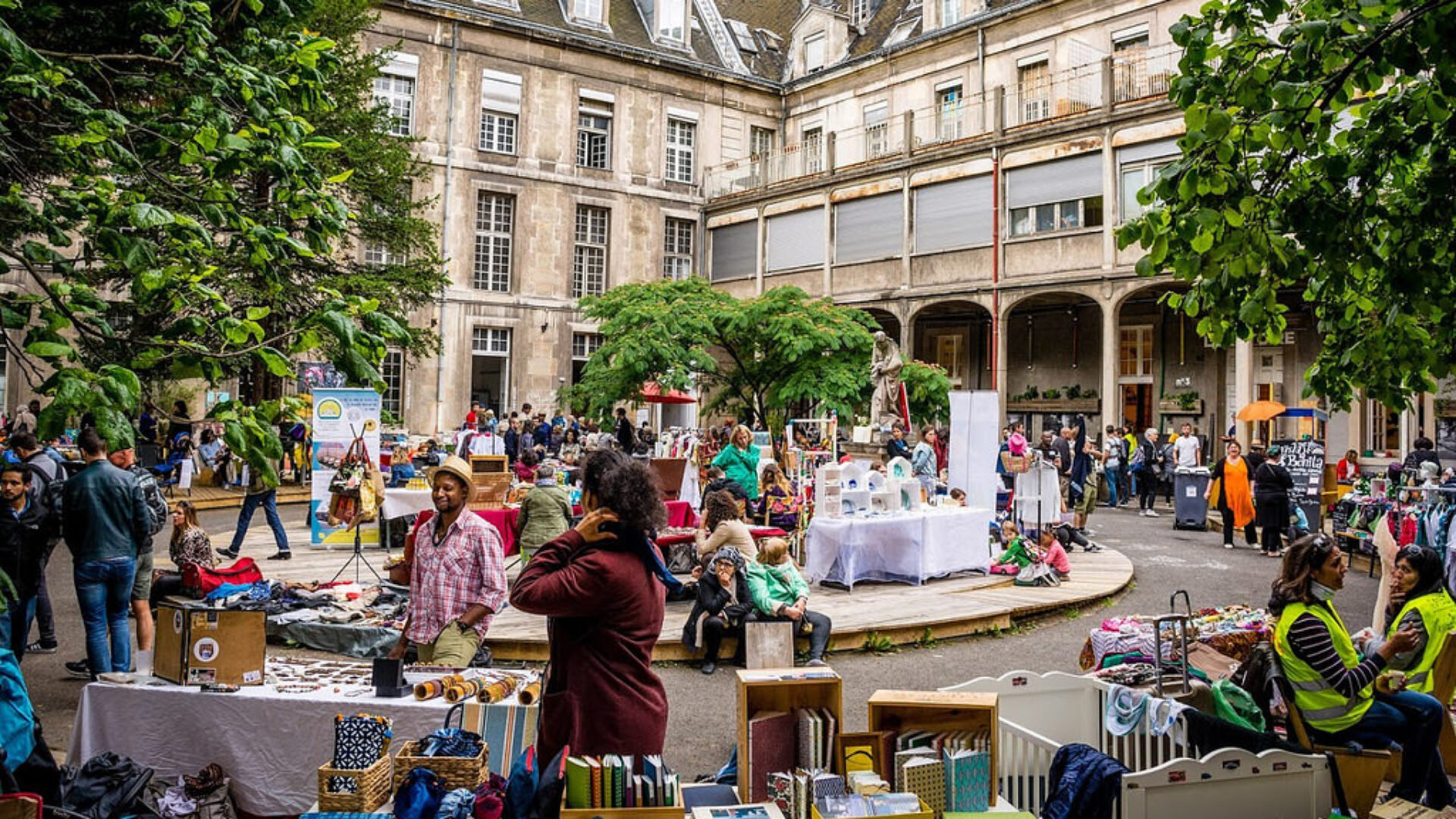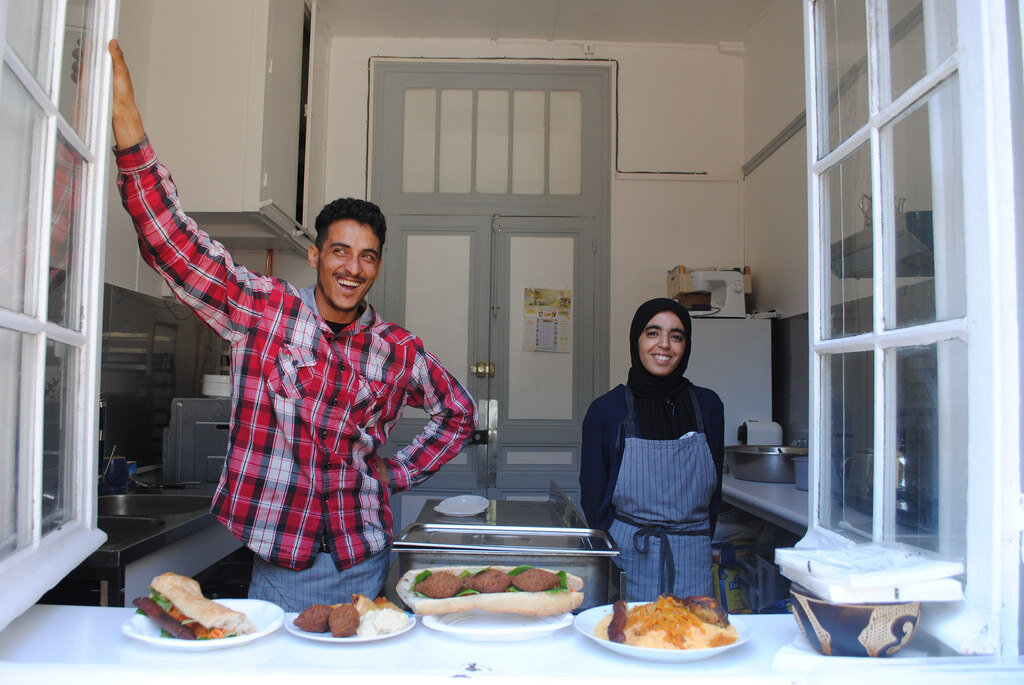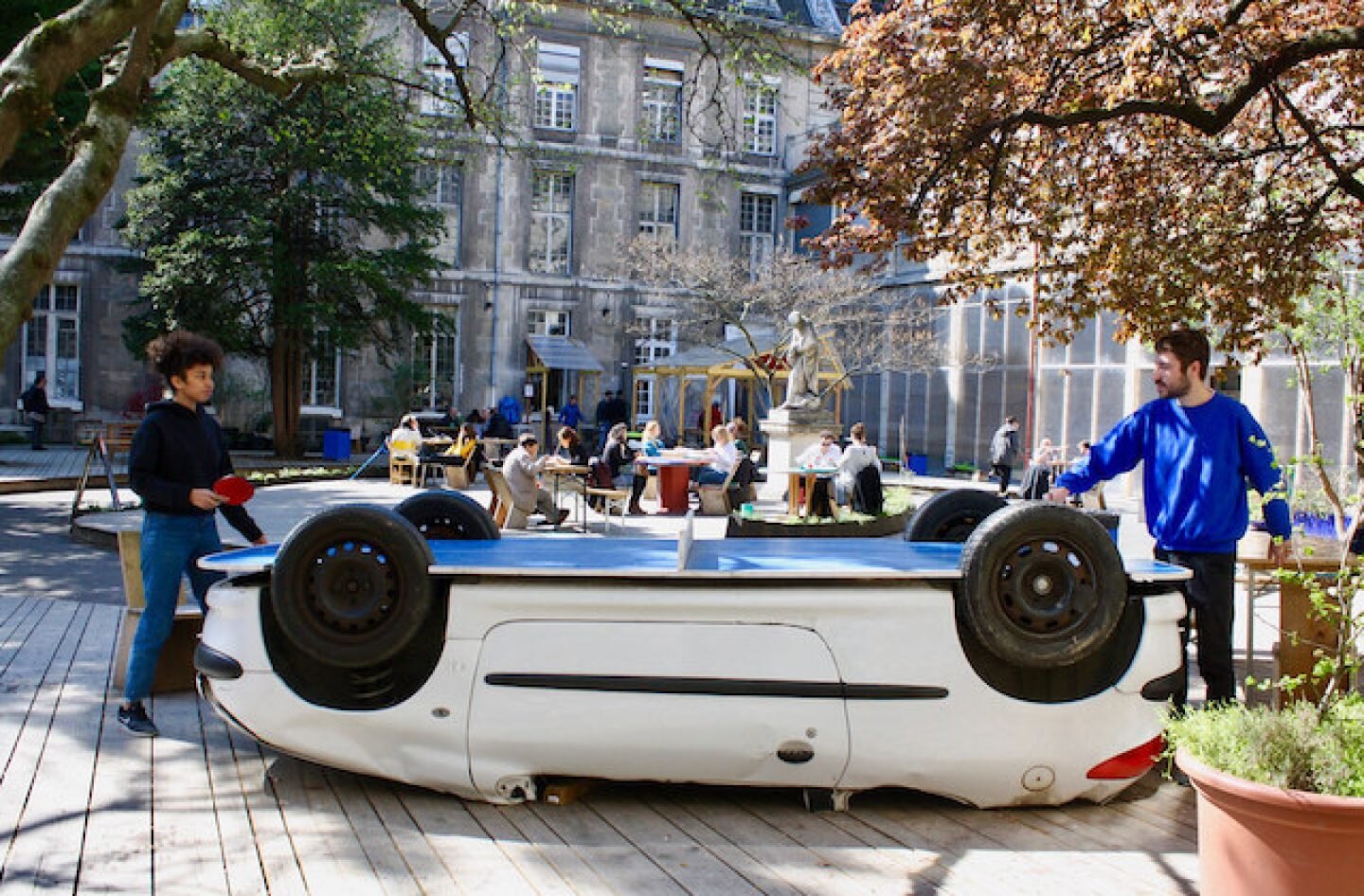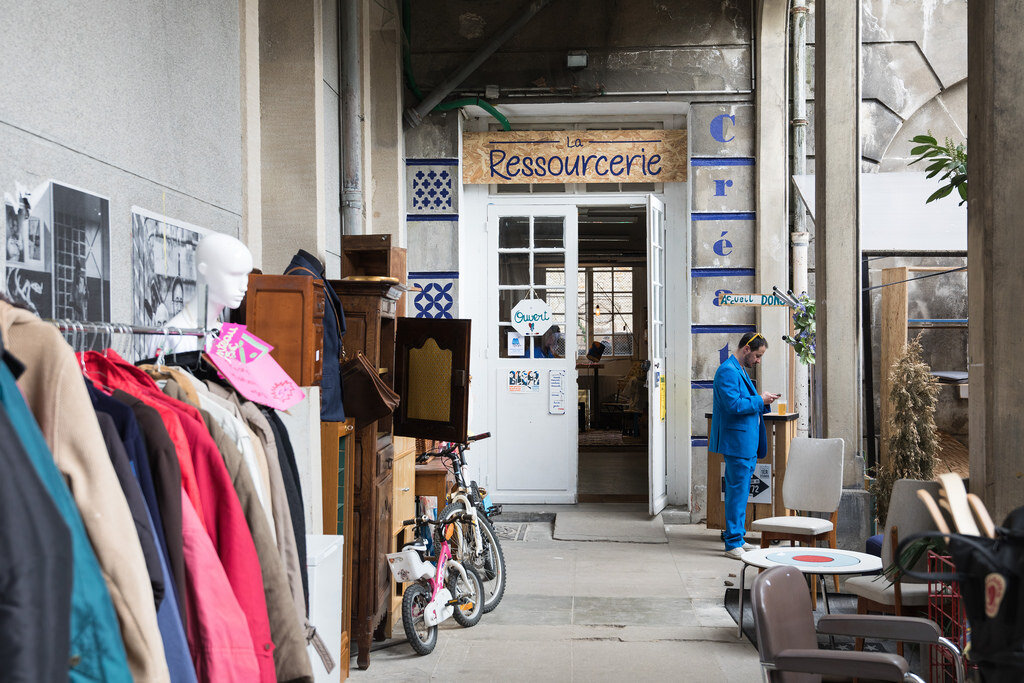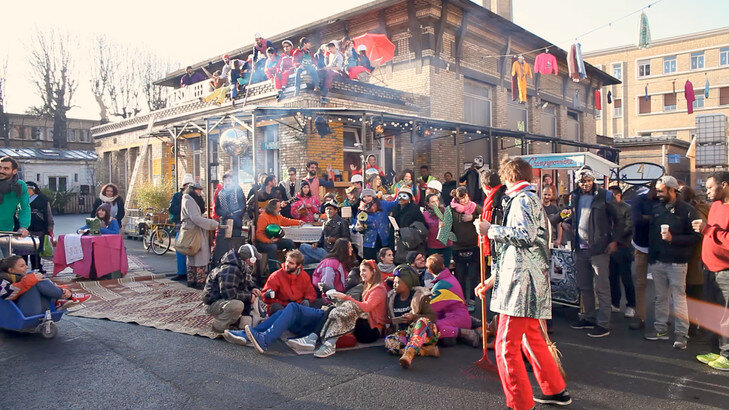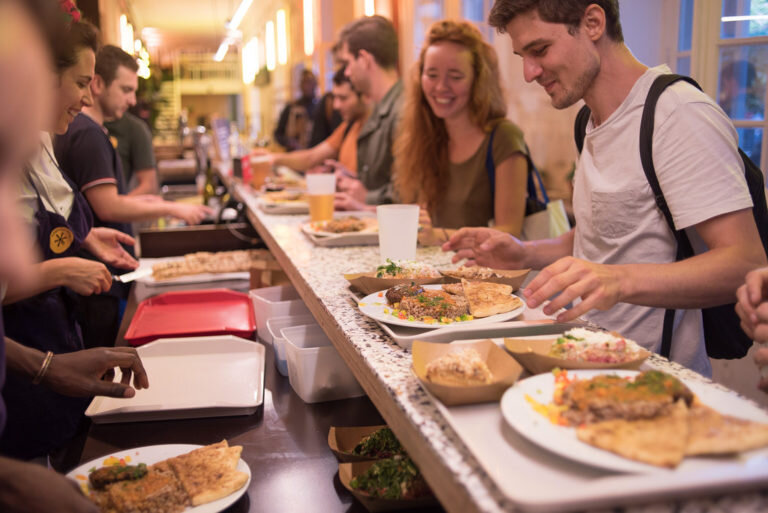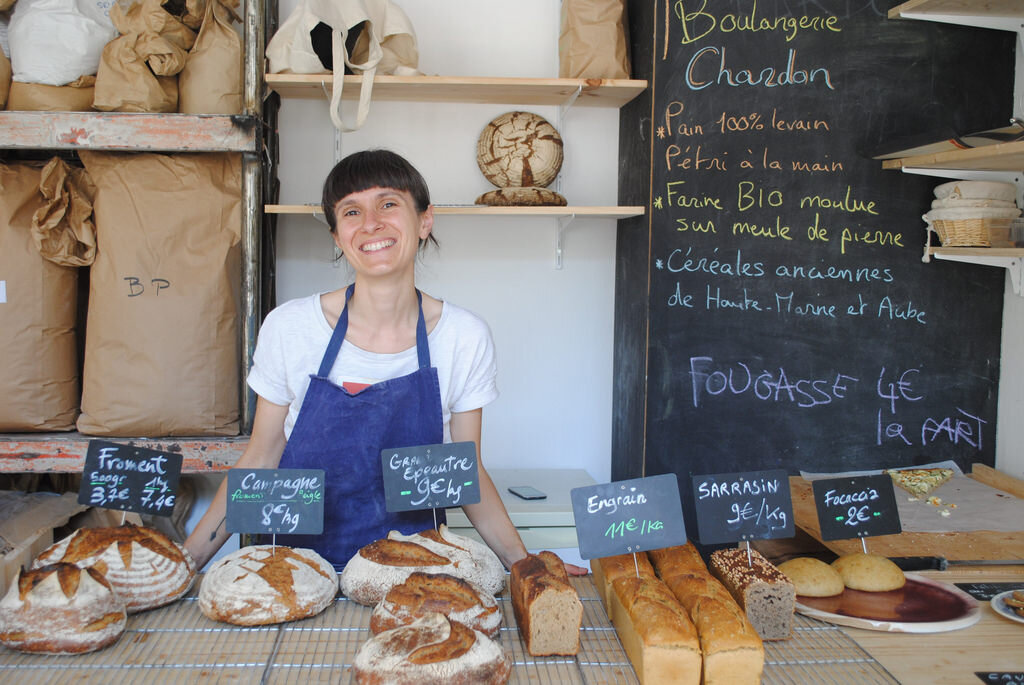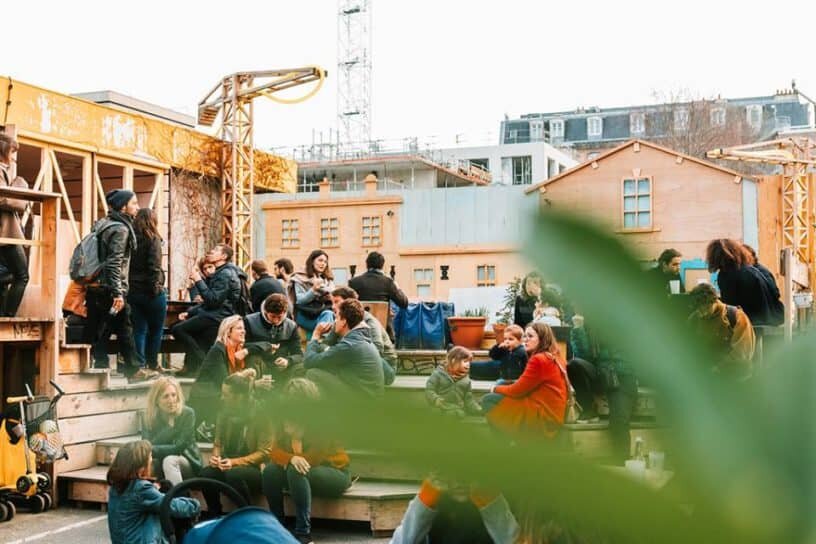A Moveable Feat: Les Grands Voisins
A Moveable Feat:
Les Grands Voisins and a Model for Community
The old hospital of St-Vincent-de-Paul sits in the 14ème arrondissement of Paris, on a wide, tree-lined boulevard half a mile south of the Luxembourg Gardens. If you were to walk past, you might look up and see the faces of its occupants looking down over the street. But they are not hospital patients, and their fixed expressions gaze at you not from windows but from posters plastered on the walls. The posters are part of a series of portraits and testimonies of those who found refuge inside these buildings during the pandemic. One, Florin, said: “Nous sommes dans un pays où la fraternité existe seulement sur le papier. Égalité, jamais.” Inside these walls, the maternity hospital has been replaced by a community project that places fraternity and equality at the core of its existence: Les Grands Voisins.
Founded nearly four centuries previously, St-Vincent was finally decommissioned in 2012, its worn buildings earmarked for demolition. At this point an organisation, Aurore, stepped in to write an unexpected epilogue to the hospital’s story. Together with two other associations, Aurore spotted the potential of the site, and workers from these three organisations repurposed the old buildings and set about creating a unique habitat in the centre of Paris, a temporary community which would combine social care and creative industries.
Les Grands Voisins opened its doors in 2015, initially on a two-year lease. The operations onsite are twofold. The first and most important is the provision of care for the most vulnerable in Paris, often those living on the edges of society, including the homeless, refugees and asylum seekers. Every morning, food parcels are distributed from the Oratoire courtyard, and in one corner, those living on the streets can take a shower, as well as repair, wash and supplement their clothing. Les Grands Voisins also provides accommodation for several hundred of those most in need. In the offices upstairs, Aurore employees help asylum seekers and refugees with their respective paperwork, and others give French lessons for those who require them.
L’Oratoire Restaurant by photographer Anne-Claire Héraud
To support these features of social care and integration, the old buildings of St-Vincent now feature a restaurant, street-food stall, épicerie and boulangerie. What was once the lingerie is now the bar, there are ateliers nestled in the passages, and the courtyards play host to a market every fortnight. This business model proved so successful that Aurore and the Paris city council agreed to extend the lease until 2020. In the last eighteen months, the site has been gradually demolished, and as we enter the final few months only three of the eight courtyards remain. Behind the bar, cranes loom over the rubble where the chaufferie once stood. This is a project bought on borrowed time, and the deadline approaches.
The hospitality of Les Grands Voisins draws a steady stream of customers, both locals and Parisians from other arrondissements, and in the evenings and weekends the courtyards buzz with chatter and laughter. The social support services provided, meanwhile, are relatively discreet, but it would be wrong to mistake them for a bolt-on addition or secondary activity. Food distributions continued during le confinement, even as the bar, restaurant and ateliers were forced to close. The commitment to the vulnerable members of Parisian society is the soul of Les Grands Voisins. In fact, it lies at the heart of its success.
Food distribution for the homeless and people in precarious situations, via Les Grands Voisins
The triumph of Les Grands Voisins is obvious enough to anyone who visits it. As you enter the site, you can feel your attitude shift: you become more open, quicker to smile, looking on those around you in a kinder light. This total buy-in to the ethos of the project begins with the permanent staff, a tight-knit group, and continues with the large and ever-changing body of volunteers. The physical space sets the tone, too. The buildings – all elegant windows, faded stonework and airy courtyards – take on the character of a raffish elderly relative, wrinkled, time-worn and wise, and wryly tolerant of the bright hand-painted signs, the music, the table tennis mounted on a upturned Peugeot hatchback, and the other trappings. Faced with such an all-encompassing welcome, it is no surprise that visitors end up contributing to the spirit of inclusive friendship and community as much as they do.
Les Grands Voisins is a cool place, undoubtedly, but it is also a fundamentally political one. Its whole-hearted embrace of a kinder, informal, unpretentious politics in which community and personal interaction are cherished is an implicit rejection of many aspects of our society. As one of the few places in Paris in which people of all ethnicities mix seamlessly, it is little wonder that to walk through its gates often feels like leaving the rest of the city behind. Sometimes, the politics is made explicit, whether in a sign in the Oratoire condemning the complicity of the César awards in Roman Polanski’s continued career, or in the words of Marc, whose portrait sits alongside Florin’s on the outside wall: “Quand t’es dans la merde, t’es invisible.”
Indeed, there is a tension between the desperate circumstances of the refugees, homeless and asylum seekers who are provided for by Les Grands Voisins and the liberal, affluent, middle-class lives of many (including this writer) who come there as paying customers. Frequent visitors may note that those accommodated in Les Grands Voisins are visible during the daytime, especially on weekdays, only to melt away when les bobos (bourgeois bohème) arrive in the evenings and weekends. For those who have been dans la merde, visibility remains a problem.
Despite this, Les Grands Voisins is an overwhelming success story. September will see a month of celebration and reminiscence of five wonderful years, before the last buildings of St-Vincent-de-Paul are evacuated and demolished to make way for an ecoquartier. While it is easy to mourn the loss of such a vibrant community, we must hope that the model of Les Grands Voisins inspires other, similar projects. In the constant churn of urban redevelopment there are frequent opportunities for grassroots, insurgent-style collaborations of organisations to create temporary spaces for social support and hospitality. Paris is not alone in struggling with homelessness. This much, we knew already. What should surprise us about Les Grands Voisins is that it showed the middle-class that they were looking for a stronger form of fraternité, too.
Translation key:
Les Grands Voisins : The Great Neighbors
épicerie : grocery, grocer’s shop
boulangerie : bakery
chaufferie : boiler room
le confinement : confinement, lockdown
ateliers : shops
les bobos (bourgeois bohème) : bourgeois bohemians (or bougee hipsters)
être dans la merde : to be in the shit, in deep trouble
ecoquartier : eco-district, eco-neighborhood
fraternité : brotherhood
Follow Les Grands Voisins: @lesgrandsvoisins
Tom Shaw is a fourth year student at Durham University studying History. He is a regular author at Ensemble Magazine, and you can find more of his writing here.





